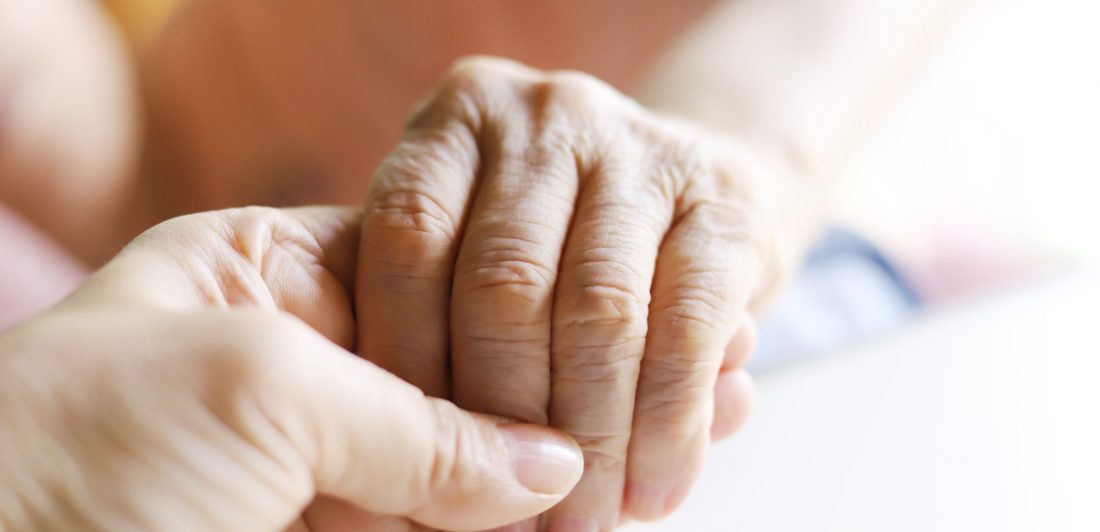Making the decision to place a loved one in a nursing home is not usually an easy one. At some point, though, many elderly people need assistance with daily living that their families may not be able to provide themselves. Nursing homes, assisted living facilities, and other services like these seem to offer a good solution to this issue. But what happens when caretakers do not provide adequate care, or worse, become abusive?
If you believe your loved one is being abused or neglected by their caretakers, you may want to look into filing a Nursing Home Abuse lawsuit.
Is It Difficult to Sue a Nursing Home?
No, it doesn’t have to be difficult to sue a nursing home. While filing a lawsuit can seem complicated or intimidating, a Nursing Home Abuse and Neglect Lawyer can walk you through every step of the process.
Our attorneys and legal teams have years of experience with these types of cases. They can help you protect the ones you love and hold the institutions that caused your loved one’s suffering responsible for their failure to provide adequate care.
What Can I Sue a Nursing Home For?
The majority of lawsuits filed against nursing homes are nursing home abuse or neglect lawsuits. Nursing home abuse happens when caretakers cause harm to residents. Nursing home abuse can take many different forms. Unfortunately, it is also relatively common due to understaffing, lack of training, and staff burnout. If your loved one has been injured due to abuse and negligence in a nursing home or any other elder care facility, you can file a lawsuit.
What is the Difference Between Abuse and Neglect?
As mentioned above, nursing home abuse happens when a staff member or caretaker causes harm to a resident of a long-term care facility. Neglect is a type of nursing home abuse that occurs when residents do not receive adequate care.
Types of abuse:
- Physical abuse
- Neglect
- Sexual abuse
- Financial abuse
- Emotional abuse
Nursing home neglect, while still a form of abuse, is not always intentional. The main distinction between neglect and other forms of abuse is that neglect is often passive, meaning it usually stems from simply not doing something that needs to be done. However, it is still a serious issue, as it can lead to severe injuries and even death.
Types of neglect:
- Neglect of Basic Needs
This type of neglect occurs when caretakers fail to take care of a resident’s basic needs, such as providing adequate food and water, cleaning the resident’s room regularly, or keeping the temperature in the room at a normal level.
- Neglect of Personal Hygiene
This type of neglect happens when caretakers do not properly tend to a resident’s personal hygiene. It can include not changing a resident’s clothes, bathing them regularly, or cleaning them up after they soil their clothing or bedding.
- Medical Neglect
Medical neglect occurs when a resident’s health care needs are not met. Some examples of medical neglect are not giving a resident necessary medication, giving improper care for residents with health issues, and not moving residents with mobility issues.
- Social/Emotional Neglect
This kind of neglect can happen if caretakers prevent residents from socializing with other residents. Social or emotional neglect can include isolating residents, not providing mobility helpers for those who need them, and forgetting to move residents who can’t move themselves.
What Are the Steps in a Nursing Home Abuse Lawsuit?
1. Determining Damages
The first step in a nursing home abuse lawsuit is to determine the damages that the nursing home has caused. Your attorney can help you establish what damages need to be compensated for. A few examples of damages that might be included in a nursing home abuse lawsuit are:
- medical bills
- physical therapy
- mental health counseling
- the cost of switching to a different nursing home
2. Filing
Once the basic details of the case and the damages have been established, your attorney will file a complaint with the court. This complaint is a legal document that contains all the relevant information of the case, including the injuries sustained and how the facility and its staff members caused them.
3. Discovery
After your attorney has filed a complaint, both parties will begin the process of discovery. Discovery mainly includes gathering evidence to support your case. Gathering evidence is vital in a nursing home abuse lawsuit because you need evidence to prove that your loved one suffered abuse or neglect at the hands of their caretakers.
What Evidence Do I Need?
The exact evidence needed for nursing home abuse lawsuits depends on the case and specific circumstances. Your attorney and their legal team will assist you in identifying what kind of evidence is necessary for your specific case. Some of the types of evidence they may help you gather includes:
- Documents that prove your relation to the victim
- Medical records
- Your own personal accounts
- Witness statements
- Testimonies from medical experts
- Pictures
- Videos
- Insurance claim documents
4. Settlement
Before the lawsuit goes to trial, the two parties will meet and attempt to negotiate a settlement. If they can agree on an amount of money to be paid for damages, then they have successfully settled the lawsuit. Usually, the two parties will try to settle to avoid going to trial. However, settlements can also be made during a trial before the verdict. Most nursing home abuse lawsuits end in a settlement.
5. Trial
If the two parties are unable to reach a settlement through negotiation, they will go to trial in a court with a judge and jury. In the trial, each party will have the opportunity to argue their side of the case and present evidence to convince the judge and jury to side with them. At the end of the trial, the judge or jury will decide the verdict: who wins the lawsuit and what damages will be awarded to the winner.
6. Appeal
If either party feels that a legal error was made in the trial, they may file an appeal. Then, the lawsuit will be seen in an appeals court. The two parties will present their evidence again, and the court will determine if there were any errors. When the appeal trial has concluded, the court will release an opinion that states whether the previous verdict will be upheld or overturned.
When Is the Best Time to Sue a Nursing Home?
If you believe your loved one has suffered abuse from the nursing home’s or other facility’s staff, it’s best to act quickly. In Texas, the statute of limitations is two years. This means that you must file your lawsuit within two years of the date of injury. These cases often take months or even years to resolve, so it’s in your best interest to act sooner than later.
The Carlson Law Firm Can Help
It can be distressing for families to discover that their loved ones are being mistreated at a facility they thought they could trust. Whether intentional or not, abuse and neglect should not go unpunished.
If you or your loved one has been abused or neglected in a nursing home or other care facility, you need a qualified Nursing Home Abuse and Neglect Attorney on your side. Our caring and compassionate nursing home abuse and neglect lawyers are ready to assist you. We care, and we can help.




